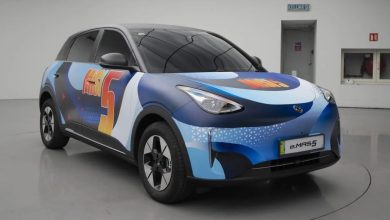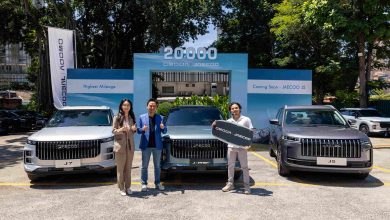The Myvi eMO-1 Is Perodua’s First Functional EV Prototype
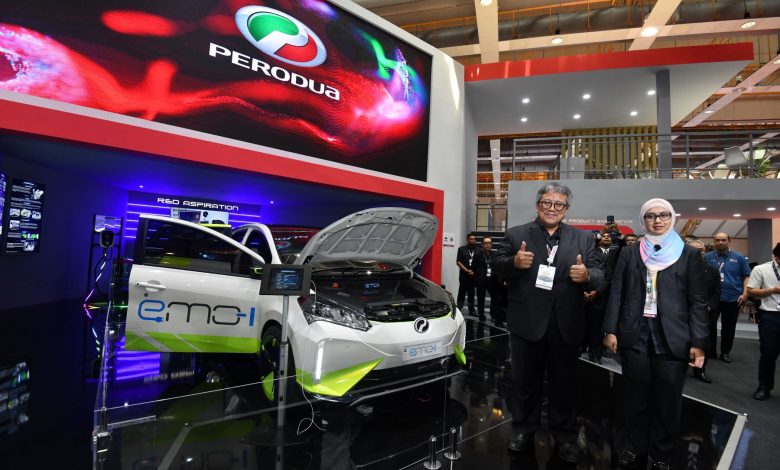
This Myvi EV conversion is to act as a the first real step in Perodua’s future all-electric endeavours.
In its efforts to meet the government’s demand and produce an EV by next year, Perodua has since revealed its eMO-1 concept at the ongoing Malaysia Autoshow 2024. An evolution of the static display it showed off last year, the big news with this particular prototype is for it to be the Malaysian automaker’s first working EV.
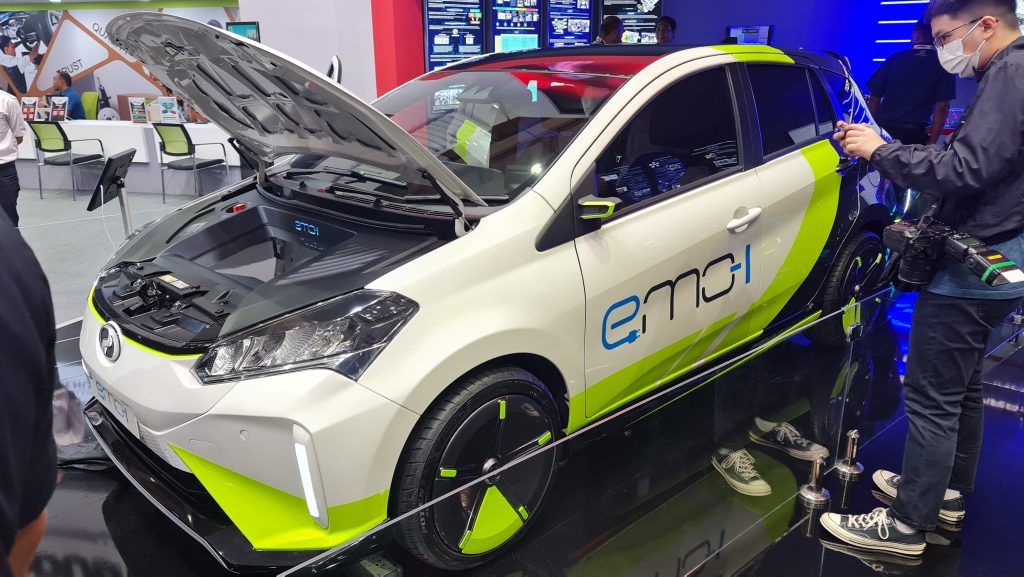
Formally dubbed by Perodua as the Myvi Conversion, this eMO-1 here is said to act as the foundation on which the automaker aims to builds its electrification technology on. And the foundation word here is to really be taken literally, as all the EV stuff on this prototype has been developed from the ground up by the Malaysian marque.
Since September 2022 when this project was first kicked off, Perodua has partnered with UPM, UniKL and Uniten for the development of the eMO-1’s battery management system (BMS), cooling system and battery pack respectively. The automaker claims for this approach will ‘enhance each entity’s expertise and capabilities in the EV field’, in addition to better ‘fully understand this technology and making it our own’.
There is nevertheless a little bit of outside help though on this project, with the Malaysian automaker having also collaborated with Australian engineering company EV North to develop the power conversion technology on this EV-converted Myvi. And while on the topic of Australia, one interesting tid-bit is for this working eMO-1 prototype to incidentally be road legal over there, from it being built to be compliant with the country’s NCOP14 standards.
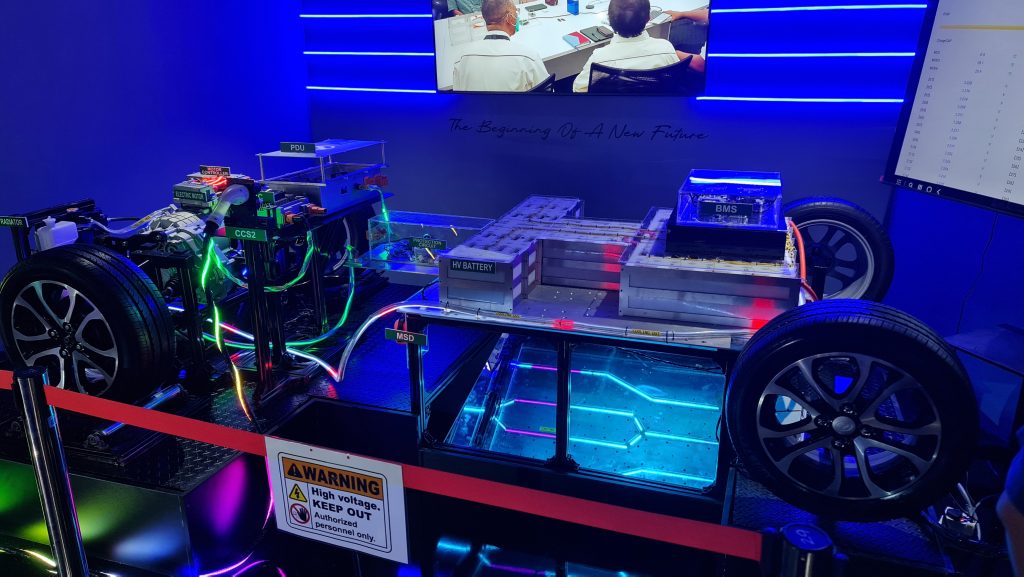
Delving more into the technical details now with the eMO-1, this EV prototype currently packs a front-mounted electric motor nominally rated for 50 kW (peak power: 120 kW) and 220 Nm of torque. Probably because of its Myvi underpinnings however, Perodua has somehow managed to translate these seemingly modest power figures into an ambitious estimated 0-100 km/h time of between 7 and 9 seconds, with this 1,400 kg electric hatchback further alluded to a 150 km/h top speed too.
Moving onto what feeds this motor meanwhile, this EV Myvi prototype currently packs a 400 V electrical architecture with a 55.7 kWh NMC battery at its core. Perodua is currently estimating for this in-house constructed pack to yield up to up to 350 km of range in this current configuration, with it further capable of handling a peak AC and DC charging power of 11 kW and 50 kW respectively.
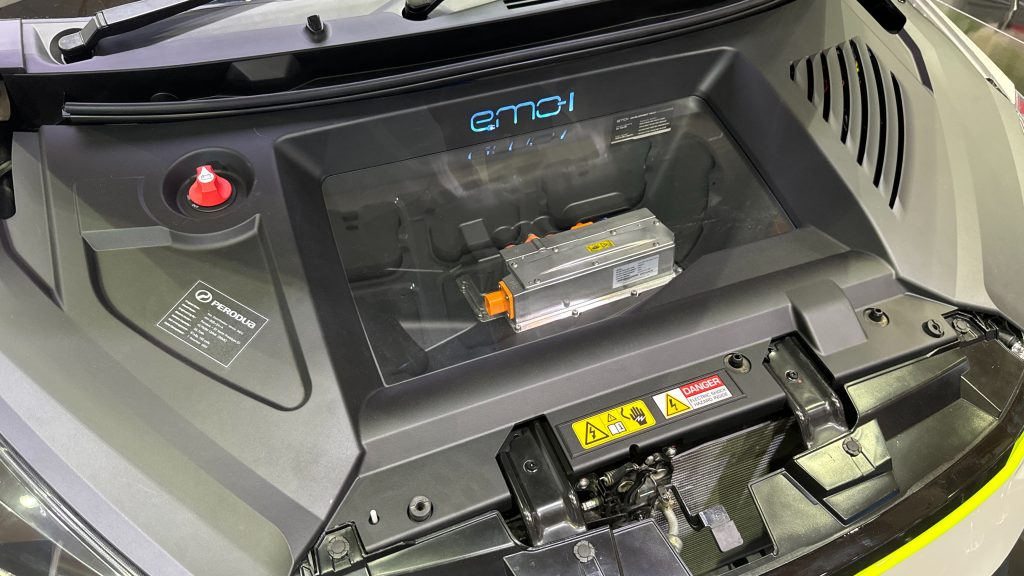
In terms of exterior changes from a regular Myvi, this eMO-1 concept predictably brings with it the usual sort of futuristic EV accoutrements that has long been a staple on other all-electric motor show showcases. Among these include a closed-off fascia paired with a more sharply-styled bumper up front, aerodynamic wheel covers and side view cameras replacing the traditional wing mirrors down its profile, and some crystal LED rear light clusters round its rump.
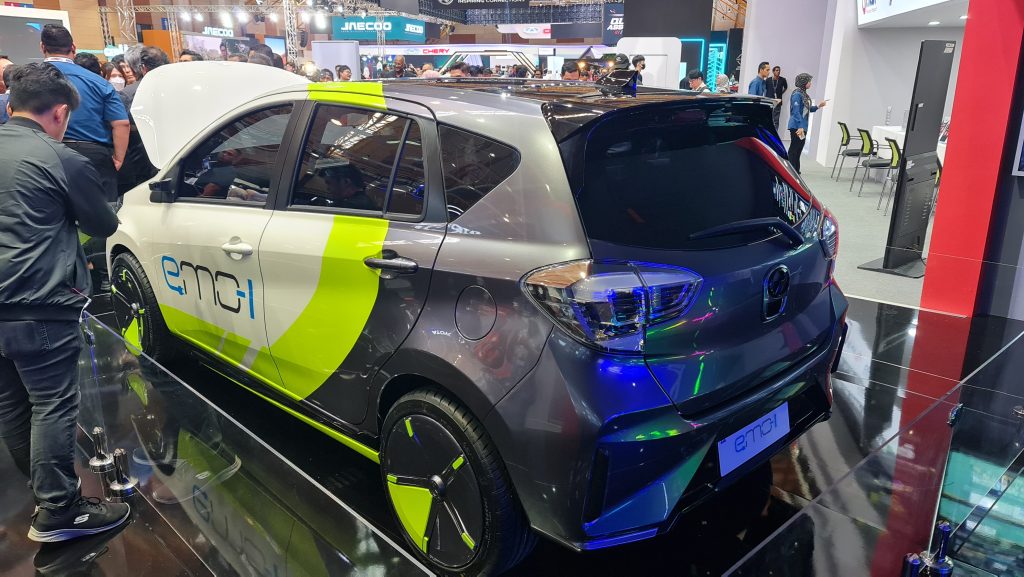
As for changes in the cabin, the eMO-1 nets a digital instrument cluster to complement the screens on its A-pillars that displays the side view camera feed. There is also to be found within this EV Myvi a rotary gear selector and steering wheel with an odd flat top, while the battery pack that has been squeezed right along the spine of this hatchback sees for its central rear seat to be replaced with a central tunnel instead.
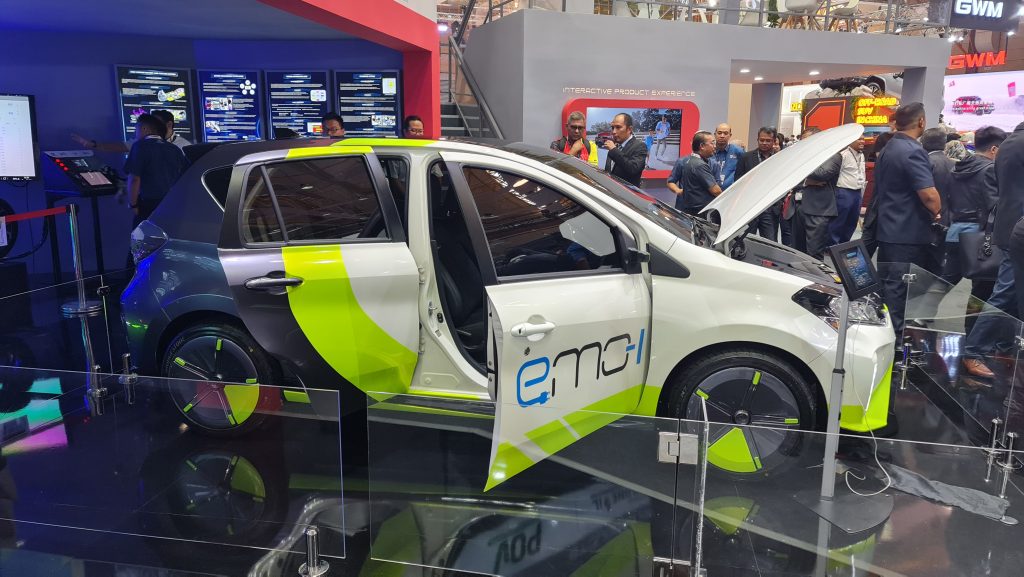
Getting back to Perodua’s statements made for this EV project here for a bit, it is rather refreshing to hear its candour in the difficulties of developing an EV from scratch. The act of involving local university students to make this as home-grown an effort as possible is to be rather patriotic too. Though it is somewhat concerning to hear (the quiet part out loud) from an established automaker for among the first steps it took in this project included doing research using the internet and reading papers, much like what a university student would have done for their own class projects…
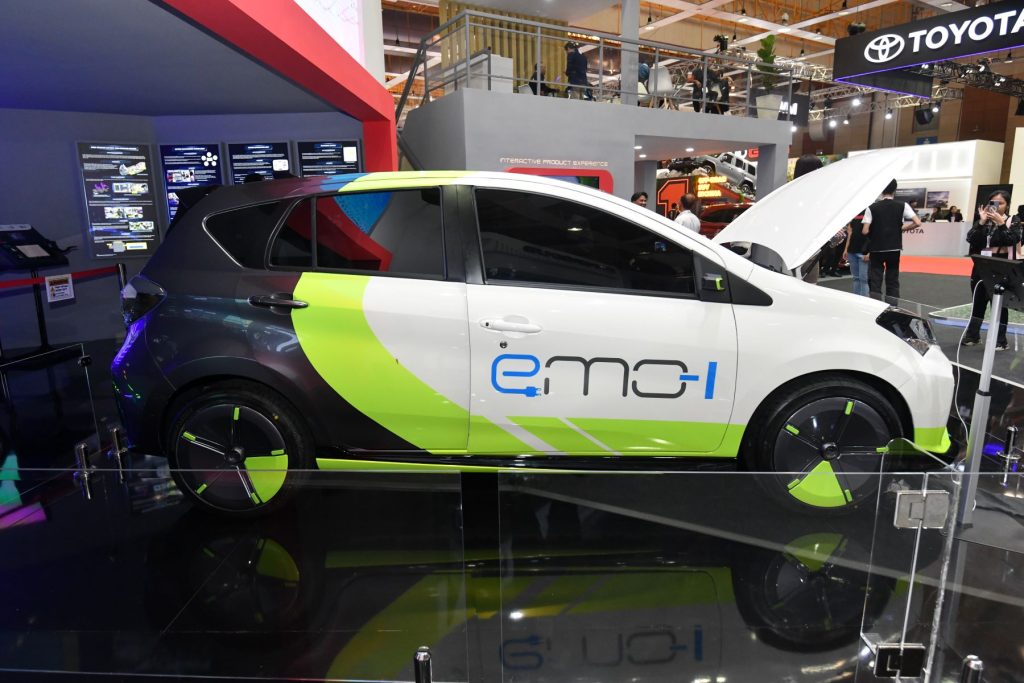
In any case, Perodua has stated for this EMO-1 working prototype to be Episode 1 in its EV journey (with the prior static concept shown last year likely now relegated as Episode 0 perhaps?) . The Malaysian automaker has also alluded to this project to potentially spawn a trilogy of episodes by next year, with a production model likely serving as the grand finale.
And speaking of this potential production model here, the automaker since hinted at a probable price range of between RM 50,000 and RM 100,000. It further alluded to there being a new mechanism to ensure better resale value for Perodua EVs too, with the hypotheses floating around for it to potentially be a battery subscription service.

